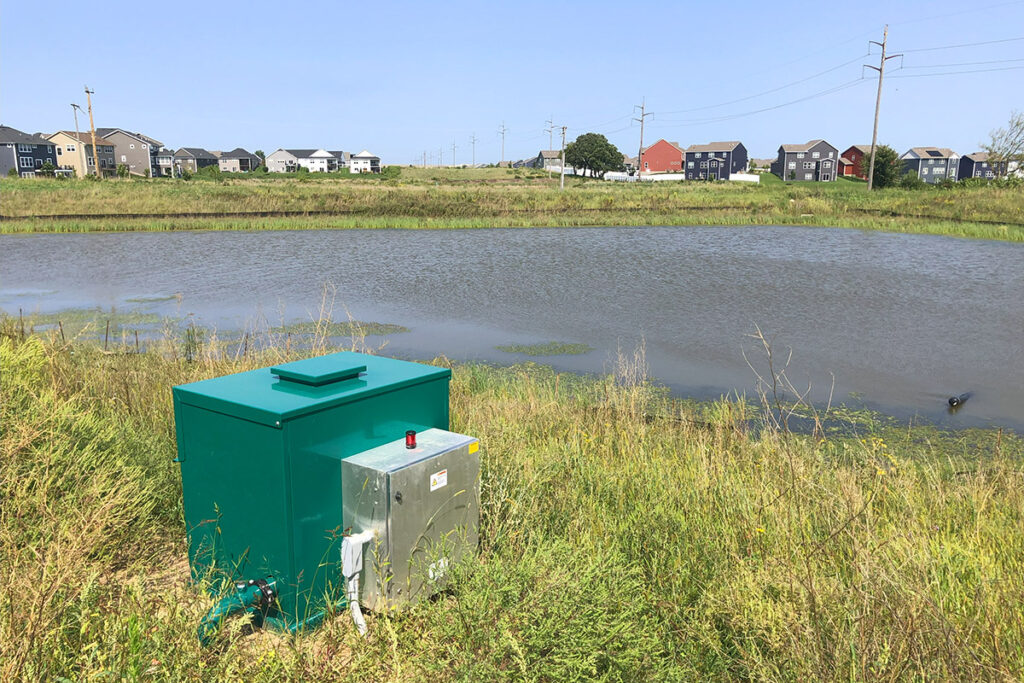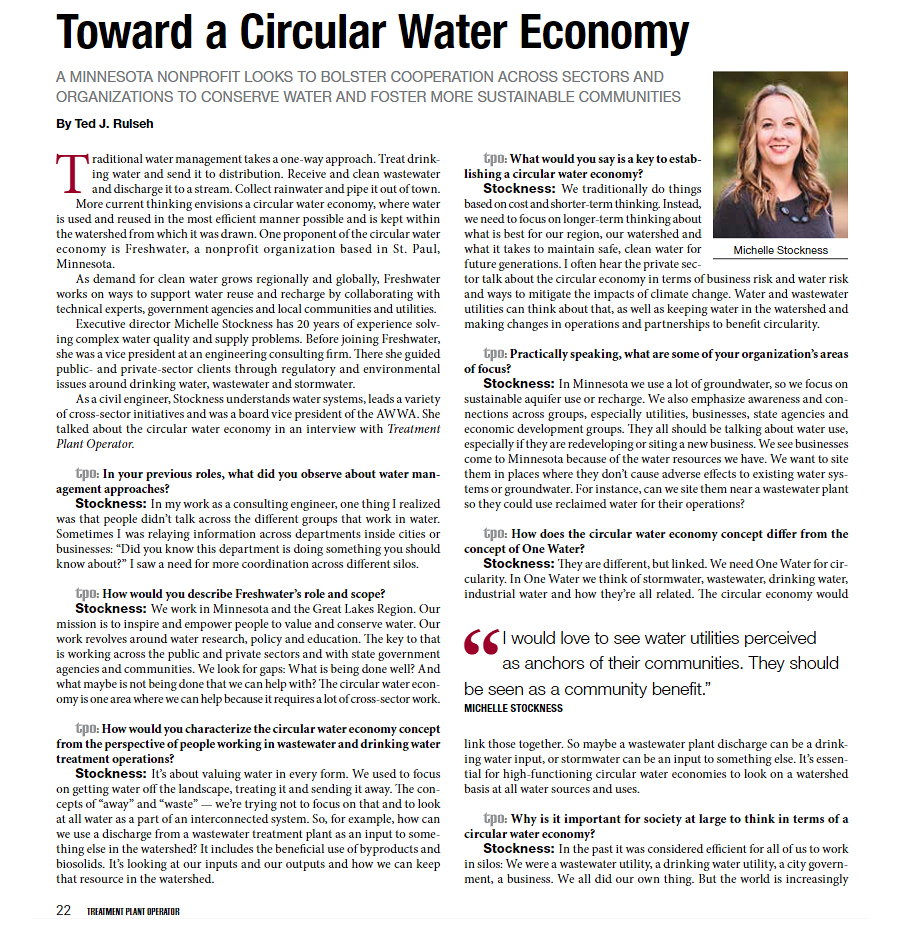With a trio of stormwater reuse site visits this fall, a published interview on circular water, and an upcoming white paper, Freshwater continues to actively promote circular water systems in Minnesota, which means recycling, conserving and replenishing water supplies to keep water local and in our watersheds. Circular water will also be one of the topics at Water Connects Us, our annual fundraiser gathering on Sept. 12.
Stormwater reuse site visits
Building on our spring Moos Family Speaker Series webinar and June workshop on water reuse and recharge, Freshwater is hosting three free site visits this fall (each followed by an optional happy hour) where you can learn first-hand how stormwater reuse is being implemented by local communities:

- City of Waconia stormwater reuse site visit
- September 26, 2:30 p.m. to 4 p.m.
- View details and register.
- City of Hugo stormwater reuse site visit
- October 1, 2:30 p.m. to 4 p.m.
- View details and register.
- City of Woodbury stormwater reuse site visit
- October 9, 3 p.m. to 4 p.m.
- View details and register.
Circular water interview with Michelle Stockness
Freshwater Executive Director Michelle Stockness recently talked with Treatment Plant Operator magazine to discuss how circular water systems can replace traditional one-way operations that use water and send it downstream.
By considering all water as part of an interconnected system, there are exciting opportunities to build more resilient infrastructure within each watershed. Read the interview here.
Upcoming white paper on circular water in Minnesota
Freshwater is putting the finishing touches on a new white paper, State of Minnesota’s Circular Water Economy, with help from Sylvie Guezeon, a graduate student in the University of Minnesota’s Circular Economy program, and with input from national subject matter experts.
As part of this research, we analyzed current water use in Minnesota – and we asked government and industry experts a number of questions, including:
1. Is water reuse or water recharge a part of your current water management strategy?
2. Do you hope to implement more water reuse or recharge in the future?
3. What are your drivers to implement circular water strategies?
4. What barriers exist?
5. What tools or partners would help you with this work?
We plan to release the paper later this fall and will keep looking for opportunities to move circular water projects forward through cross-sector collaboration and knowledge sharing.

Would you consider giving an information class in Rochester or somewhere close so that those of us in this area could learn about this?
Thanks for your interest in circular water! This is something we would consider, but it would likely need to be part of a formalized project. We have passed this on to our leadership team for discussion.